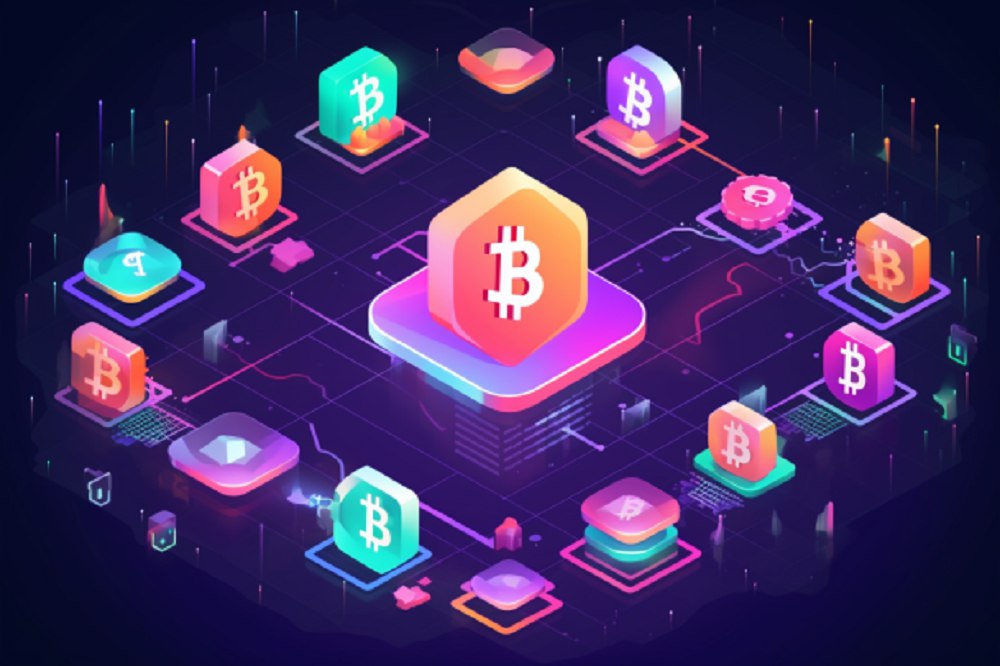The CEO of Digital Bitcoin Art and Assets (DIBA), Gideon Nweze, has revealed that there is still another way to bring non-fungible tokens (NFT) to the Bitcoin ecosystem without additional transaction fees or negative impact to block space. Nweze, also DIBA’s founder, stated this while unveiling his company’s NFT marketplace.
Smart Contracts As A Solution
According to Nweze, smart contracts on the Bitcoin network can be utilized to solve the various issues relating to Ordinals. Nweze added that smart contracts could be the answer to bringing digital collectibles into the Bitcoin platform without corresponding impact on block space and transaction costs.
Speaking during the launch of the beta phase of DIBA’s NFT marketplace, the CEO believes that the RGB Smart Contract Protocol is the answer to the underlying problems of Bitcoin Ordinals. Instead of relying on the Ordinals systems, users can leverage the RGB Smart Contract Protocol to create one-of-a-kind NFTs directly on the Bitcoin network.
Since the start of the year, the introduction of the Ordinals protocol has sparked an unprecedented surge in demand for Bitcoin-built NFTs and tokens. Interestingly, the collective number of “inscriptions” has exceeded 9 million, as Dune Analytics data shows.
Nonetheless, the rapid spike of the Ordinals Protocol has not been without its share of contentious debates, particularly its alleged limitations. Established in 2016 initially as BHB Network by the Bitcoin developer Giacomo Zucco, it was relaunched in 2019; the RGB Smart Contract Protocol has since evolved.
By incorporating Lightning Network capabilities, this innovative solution empowers users to create and trade NFTs securely through encrypted transactions. However, it doesn’t sacrifice the efficiency in utilizing network resources and minimizes storage requirements.
A Complex Solution For Bitcoin Ordinals
Nweze noted that the RGB protocol is fundamentally similar to an Ethereum layer-2 scaling solution. He further explained that this innovative technology holds the potential to tackle the recent block space challenges affecting the Bitcoin blockchain.
Furthermore, the Ordinals Protocol has faced widespread criticism due to its previously minted assets which were ineffective. According to Nweze, these concerns arise from Ordinals directly embedding assets “into” the Bitcoin blockchain.
In contrast, RGB takes a layered approach by processing transactions on top of the network. It is worth noting that the RGB platform can mint only NFT and not BRC-20 tokens.
Similarly, the Trustless Computer protocol presents an alternative solution by utilizing smart contracts to mint BRC-20 tokens. This project distinguishes itself as a “protocol within a layer 1” rather than a layer 2 solution and achieves a remarkable 80% to 90% reduction in token bandwidth by implementing smart contracts.
Meanwhile, Munewb Ali, CEO of Trust Machines, also shared Nweze’s sentiment by noting that Ordinals could help Bitcoin attract developers and funds to Layer-2 protocols. Ali expressed concern regarding the long-term adoption of Bitcoin, emphasizing that high fees and a congested network could hinder its widespread usage without effective scaling solutions.
Nweze added that the durability of protocols and assets developed on the Bitcoin network is expected to significantly increase as developers tap into the full potential of the Taproot upgrade. The DIBA CEO added that the Taproot system powers all activities on DIBA.
He noted that the immense possibilities that NFTs on Bitcoin will bring are an exciting addition to the digital economy.
